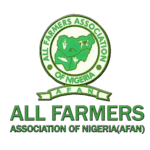The Executive Provost, Federal College of Animal Health and Production Technology, Moore Plantation, Ibadan, Dr Olatunde Owosibo, in this interview, spoke with selected journalists on the challenges faced by livestock farmers; how best to make agriculture attractive to the youths and why state governments should provide irrigation facilities and other farm infrastructure. Excerpt:
With the on-going feed crisis, is there any way we can get alternative ingredients for animal feeds aside maize and soyabeans?
Researches have been made with regards to alternative sources of ingredients suitable for poultry. Ingredients like maize, soya beans and groundnut cake (GNC) have been under research over the years. However, we found that it was insufficient to serve commercial purposes. Despite this challenge, we have made a major breakthrough which can support livestock production at minimal levels. An example is cassava, but which also has its limitations, because finely ground cassava is powdery and may seep out of the bag if it is moved regularly. We have also considered the use of oil materials in binding the cassava input which, unfortunately, has not effectively contributed to commercial agriculture.
Can farmers explore the possibility of a minimum of 20% of cassava to replace maize?
For now, we can effectively make up to 10 per cent with maize, which is to a great extent, available due to its intensive production and this also will produce excellent results in livestock because maize is an essential source of poultry feeds. The protein content of cassava is about 2-3% as determined by its variety, while maize contains 9-11 per cent of protein also based on its variety. However, maize is much preferred to cassava given that maize is richer in quality of protein.
Maize is more advantageous. But cassava inclusion satisfies 10 per cent wholesomeness for monogastric animals and 40-50% in ruminant animals. A 100 per cent substitution will require a lot of effort, especially in improving the protein content in cassava and the other feed ingredients that will be mixed with it so that it meets the nutritional requirements for the growth of livestock.
Are field millers and commercial farmers embracing the 10 per cent inclusion already researched on?
Yes. It has become widespread and I will still say that more work needs to be done.
Can yam be considered a substitute also as Nigeria is the largest producer of yam?
Yes. It can be considered except that the human factor will be considered too, as humans consume yam as well, the growing population and the dwindling production of food crops to meet and satisfy man’s need for nutrition. So it may not be an effective alternative. Rice can also be fed to livestock, but the availability to humans takes out the possibility of making it a livestock feed.
However, in areas where the aforementioned are produced and are purchased for a paltry sum, livestock farmers can undoubtedly use them as that will still be cost-effective.
Do you envisage a feed crisis due to the ban on maize importation and climatic factors as the produce is an essential poultry feed ingredient?
Sincerely, I foresee a lot of crises in the animal production industry, especially the poultry industry, if there isn’t a swift intervention by the government. Drought has been prevalent in the southern parts of the country since 2020 and flooding is taking over the North, where maize is largely produced and not to talk of the pandemic that has put a halt to many things.
The little produced is hardly sufficient for consumption. So, the government, I strongly suggest, should lift the ban on maize importation to protect the poultry/animal industry from further crisis. The drought is affecting other crops as well. Crops, like soya bean, are also affected and so also the farmers’ output.
How can youths be attracted into poultry business vis-a-vis the rate unemployment level in the country?
The government is doing a lot to encourage and intimate young persons to be part of the livestock industry, sometimes providing them with start-up kits and sponsoring fundamental training. Sadly, most of them find it exhausting, so they opt out for opportunities which appear greener.
Will farm settlements work for livestock and broiler production?
We should go back to farm settlements and ensure that basic social amenities are on ground to make the lives of the farm settlers better. With the farm settlements in place, the country will be able to curb the problem of protein deficiency among the populace, to which livestock products will be contributing a great deal.
What can be done to prevent farmers/herders clashes in the country?
At this point, adopting the feedlot method of cattle production, which is more modern and will serve our current modernised society, is better than open-grazing method, which recurs, regrettably.
Many Nigerians are lamenting the seeming unemployability of graduates of our tertiary institutions. How would you rate the quality of education imparted to your students and its impact in the agricultural sector?
The mandate of this institute is to produce skilled and mid-level manpower in the area of animal health and agriculture-related sciences for extension purposes in the country, and animal production generally. Thus far, we have not failed in fulfilling that mandate.
Our college has produced competent graduates who have been recruited in large-scale livestock industries. We have not deviated from the concepts on which the institution was founded. We also train them enough to become independent, own and run their own livestock farms.
Climatic factors call for rehabilitation of farm infrastructure. Do you agree that each state government should put irrigation facilities in place?
Yes, it is and we also need to be practical. For instance, we have a more favourable climate than Israel, yet Israel is self-sufficient in terms of food production. With this in view, we can encourage the government to be interested in agriculture and to see the possibility of our indigenous sector faring better in a larger scale and supporting the building of dams and other irrigation facilities in all states in the country.


